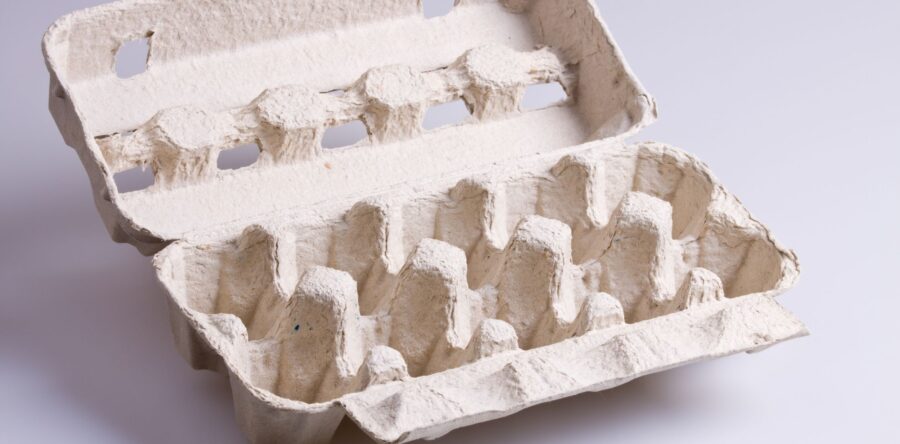Molded Fiber Egg Cartons: Why Switch?

How is switching to molded fiber egg cartons beneficial to your company? Molded paper pulp provides maximum security for fragile and delicate products such as eggs at all stages of the movement process. With such reliability, the financial losses incurred during this process are reduced to a minimum.
If you are a food service provider, egg supplier, or restaurant owner, chances are you have used or come across the molded fiber. It's a material that's developed from a number of fibrous substances such as cardboard, sugarcane, bamboo, straw, as well as recycled paper or other natural fibers. Every type of fiber comes with certain levels of durability and strength and even different colors. These varieties are vital in the sense that molded fiber is used across many industries for packaging all kinds of products. Below are some excellent examples.
The Food Industry:
Single-use cups, carryout food containers, egg or produce containers, bowls, and plates.
Industrial:
Packaging for household items such as furniture, electronics like cell phones and TVs, and vehicle parts, among others.
Horticulture:
Seedling trays and planter pots.
Medical:
Single use kidney dishes, bedpans and medical bowls, etc.
Molded fiber products
Thick wall - Single mold. This type is mainly used as support packaging for products that aren't considered as fragile.
Transfer Mold - This mold is mainly used for food trays and egg cartons but can sometimes be used in disposable office equipment, tableware, electronic products, and hospital items. It has one transfer mold and one forming mold and is oven-dried.
Thermoformed (thin wall) – This type of molded fiber is developed using various heated molds, dried in the mold with no oven curing required. This molded fiber is almost the same as thermoformed plastic material. It can also act as support packaging for some products.
Processed - These molded fiber products are processed past being cured and molded. Good examples are perforated, hot or after pressed, colored, printed, and die-cut.
Molded fiber can be formed into any shape and size that is required. Compared to polystyrene, it can reduce transportation expenses. However, sustainability is the benefit that stands out as far as molded fiber or pulp is concerned.
Molded fiber egg cartons are made out of all-natural and fibrous material, making them completely biodegradable, recyclable, incinerator friendly, and compostable. It can be made from recycled material. There is almost zero waste in the production process since both the water and fiber used can be reused and recycled in the future.
Molded fiber is an excellent material for using in molded fiber egg cartons with 100% sustainability and versatility benefits.
Are egg cartons recyclable?
There are no chemicals involved in the pulping process of molded fiber egg cartons, and they are developed from raw materials that are 100% post-industrial. The process requires water, movement, and recycled newsprint or corrugation. The process is environmentally friendly since no hazardous or toxic materials are included or excreted.
Egg mini trays for 20 and 30 eggs enable saving space during product transportation, arrangement, and storage in sales rooms. This drastically reduces the costs incurred during transportation and warehouse logistics.
Molded pulp has become more prevalent in recent times. It is considered to be among the best packaging solutions for thousands of products. For example, molded fiber ( or molded pulp) has been used to make egg cartons for over 100 years and is crafted from 100% recycled newspaper allowing you to recycle egg cartons.
The material provides a time-saving, cost-efficient, sustainable, and space-saving solution that can positively impact your business while showing your customers the commitment you have towards the environment's well-being.
